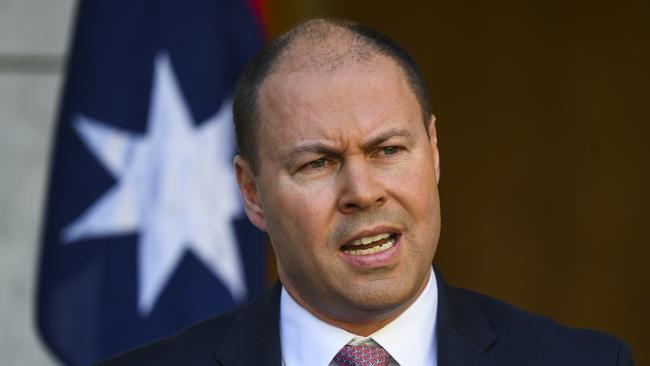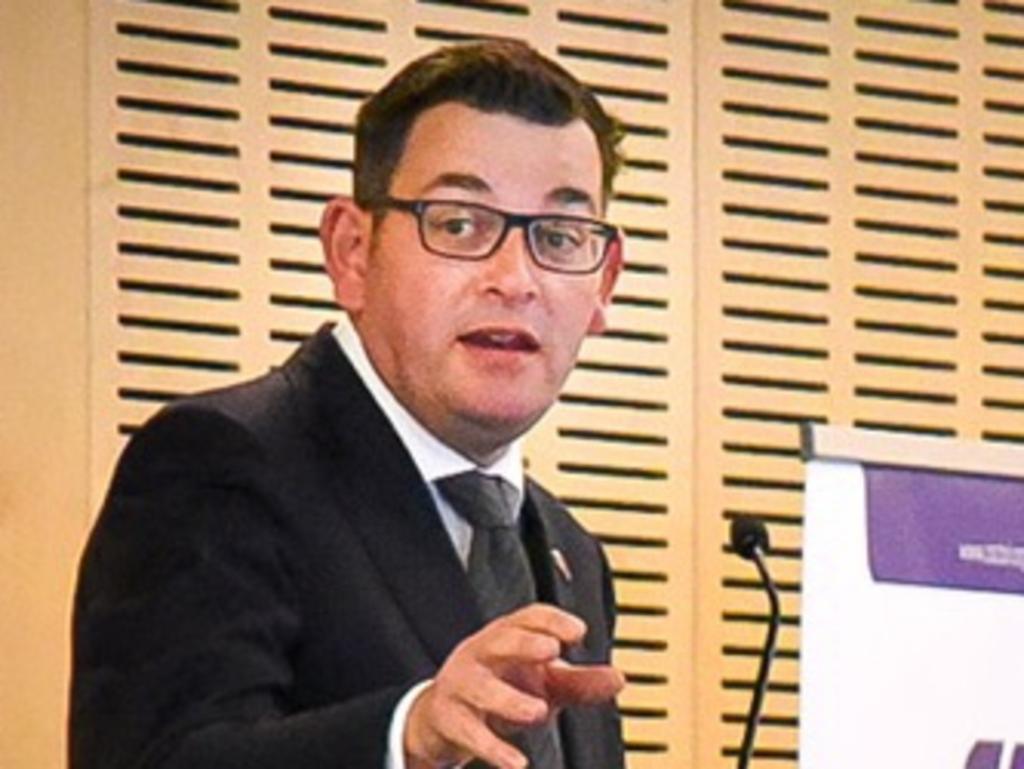Frydenberg cracks down on class action profiteers
Litigation funders will be forced to operate under tough new rules, as the government acts to protect businesses and jobs.

Litigation funders will be forced to operate under tough new rules, as the Morrison government orders a crackdown to protect Australian businesses and jobs during the COVID-19 economic crisis and combat a 325 per cent explosion in class action cases.
Responding to pleas from industry groups to shield local companies, Josh Frydenberg will announce on Friday regulations requiring litigation funders to hold an Australian financial services licence and comply with the managed investment scheme regime.
The Treasurer said the number of class actions had “tripled over recent years” and it was time that litigation funding activities were “regulated in a manner consistent with other financial services and products that seek to provide investment returns to consumers”.
“Now more than ever we want Australian businesses staying in business and focused on keeping people in jobs rather than fending off class actions funded by unregulated and unaccountable parties,” Mr Frydenberg said.
“There is no reasonable basis for litigation funders to continue to be exempt from the same regulation that applies to the entities they seek to litigate against.”
The government is also backing a parliamentary joint committee on corporations and financial services inquiry into litigation and the regulation of the class action industry, which is due to report by December 7.
The Australian revealed last year that an explosion in class action claims funded by overseas litigation backers was threatening investment and jobs in Australia, with more than $10bn in claims lodged against businesses in 2018-19.
Attorney-General Christian Porter flagged class action reform earlier this month, including heavily scrutinising the bloated profits of the major litigation funders.
Mr Porter said there was a “growing concern that the lack of regulation governing the booming litigation funding industry is leading to poor justice outcomes for those who join class actions expecting to get fair compensation for an injury or loss”.
Under previous rules, litigation funders did not face the same regulatory scrutiny and accountability as other financial services and products and were exempt from holding an AFS licence, avoiding regulatory scrutiny under the Corporations Act.
Mr Frydenberg said the removal of previous exemptions would force litigation funders to secure a licence from the Australian Securities & Investments Commission. AFSL holders are obligated to “act honestly, efficiently and fairly, maintain an appropriate level of competence to provide financial services, and have adequate organisational resources to provide the financial services covered by the licence”.
The government’s amendments to existing regulations will take effect from August.
The litigation industry, which is dominated by Omni Bridgeway and Litigation Capital Management, has grown at a rate of 23 per cent per year since 2014, with industry revenue hitting $140.2m last year, securing an average profit margin of 34.2 per cent.
Federal Court data shows class action filings have increased by 325 per cent in the past decade, with litigation funders taking a significant proportion of proceeds.
Research by the Australian Law Reform Commission has revealed litigation proceeds were divided, with 27.8 per cent going to litigation funders, 55.6 per cent to affected shareholders and 16.6 per cent towards legal costs. When a funder was not involved, plaintiffs received 85 per cent of proceeds.
In 2018, funded class action proceedings filed in the Federal Court constituted 78 per cent of all filed class actions, up from 49 per cent between 2013 and 2016. Between 2017 and 2018, 77 per cent of finalised class actions received litigation funding, up from 40 per cent between 2008 and 2012.
The ALRC said there were 54 class actions launched in 2018-19, up from 18 in 2012-13 and 37 in 2015-16.
Australian Industry Group chief executive Innes Willox has led the business campaign to crack down on global litigation firms, which he said had been earning “outrageous” returns in Australia at the expense of local companies, claimants and governments.
The AiGroup released a seven-point plan last year calling on the government to regulate litigation funders through ASIC, impose reasonable limits on returns to plaintiff lawyers and litigation funders, and prohibit litigation funders from exerting any control over the positions and arguments prosecuted by law firms.
Leading insurance brokers told The Australian there was a greater risk to smaller companies than larger businesses, which could self-insure and had bigger budgets for risk-management staff and internal compliance.







